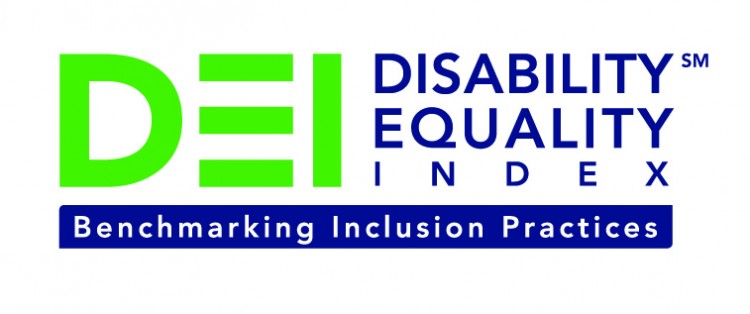Disability Equality Index Ranks the Best Places to Work for People With Disabilities
Staffers at the American Association of People with Disabilities (AAPD) and the US Business Leadership Network (USBLN)  have partnered to create the Disability Equality Index (DEI), a national inventory used to assess and benchmark businesses’ disability inclusion practices. Now in its second year, the DEI is recognizing 42 of the 83 companies that participated in 2016 with a 100 percent score and “Best Place to Work” honors.
have partnered to create the Disability Equality Index (DEI), a national inventory used to assess and benchmark businesses’ disability inclusion practices. Now in its second year, the DEI is recognizing 42 of the 83 companies that participated in 2016 with a 100 percent score and “Best Place to Work” honors.
Among the top-ranking companies are Starbucks, AMC Theatres, Verizon, AT&T, Sprint, Delta, JPMorgan Chase, P&G, Comcast NBC Universal, HP, General Motors, Walmart, and American Airlines.
A few of these businesses have made news in the past for their disability-friendly practices. Starbucks, for instance, just hired 10 deaf baristas at one of its stores in Kuala Lumpur. AMC, the second largest cinema chain in America, has led the way with sensory-friendly screenings since 2007.
Helena Berger, president and CEO of AAPD, told The Mighty the survey may also guide people with disabilities and their loved ones on where to spend their money.
“The DEI helps people with disabilities better target where there are greater employment opportunities within industry segments,” Berger added. “In addition, it shows which companies are actively engaged and working toward disability inclusion for employees, customers and suppliers.”
Companies that choose to complete the DEI are evaluated on their responses to a wide-ranging survey, which asks weighted and non-weighted questions in four categories: Culture and Leadership, Enterprise-Wide Access, Employment Practices and Community Engagement and Support Services.
While the DEI’s creators recognize that a survey can’t accurately capture the holistic experience of disability at a company, they say their inventory has produced concrete changes in several participating businesses, including formation of employee resource groups on disability and increased support from high-level executives.
“We know that policies alone don’t always translate into inclusion,” Jill Houghton, executive director of USBLN, said. “The DEI provides a road map for advancing disability inclusion by enabling companies to see both strengths and areas of opportunity that exist across their organization, and provides a means to benchmark against their competitors and businesses as a whole.”
And, at the end of the day, that’s what it’s all about, according to Houghton.
[The DEI] is designed to promote and advance disability inclusion practices and policies within corporate America that lead to better employment outcomes for and inclusion of people with disabilities, as employees, customers and suppliers. When businesses include people with disabilities, everybody wins.
See the full list of “best places to work” here. Are you a person with a disability who has worked at one of these places? What was your experience like? Tell us in the comments below.
Image via Wiki Commons / Raysonho

